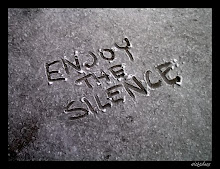Secular, which can be described briefly as a worldview that emphasizes the meaning of life on a particular time or period in the world viewed as a historical process, has influenced many Muslims, in their way of wearing, judging, believing, and thinking. And because of their influential positions in Muslim society, as scholars and intellectuals, they become consciously or not disseminators of unnecessary confusion and ignorance spread by Western civilisation.
The process of making secular is called secularization. This contains three things: disenchantment of nature, desacralisation of politics, and the deconsecration of values. By first, secularist mean the freeing of nature from its religious overtones, separating it from God, so that man may no longer regard nature as a divine entity, which allows him to act freely upon nature according to his needs and plans. By the last they mean the rendering relative all cultural creations and every value system including religion and worldviews having ultimate and final significance, so that the future is open to change, and man is free to create and immerse himself in the revolutionary process.
With secularized Muslim, I refer to those who has been influenced by Western viewpoints and civilisation, who choose to deny Islam’s values and behave as if they have nothing with Islam in spite of their identity of Muslim. However it is still debatable to define precisely who they are and their position among Muslims.
Source: Al-Attas’s books
Written in my first year in campus
Thursday, 13 September 2007
Secularized Muslim
Posted by
Imdad Robbani
at
12:19
2
comments
![]()
Labels: 1st Year Doc, Article, islamization, knowledge, secular
Islamization of Knowledge
Islamization—mainly in the field of knowledge and sciences—sounds a bit strange, and for some it reflects fundamentality of those who uphold it. To me it deserves to be considered as an implication of Islam itself. For Islam is a religion governing all aspects of human being, including knowledge and sciences. Furthermore the first verses revealed to the Prophet—upon whom be peace and God’s blessing—are concerning of reading, which may be understood rightly that the first and most important duty in Islam is to read, means to attain knowledge in the way governed by God’s guide as it is implied in those verses. Read in the name of your Lord Who created!
Written in my first year in campus
Posted by
Imdad Robbani
at
12:14
0
comments
![]()
Labels: 1st Year Doc, Article, epistemology, islamization, knowledge
Saturday, 8 September 2007
OSPEK
These last three days my sister joins OSPEK (campus introducing and study orientation) for new students in IAIN Surabaya. It is when they are introduced to new environment different from what they have in intermediate school, namely to a more free educational atmosphere. In this new environment they’re free from many things they must do before.
Basically it is intended to make a campus life more familiar to them. But then the way the committees carry out makes some of its basic aim unclear, and in some ways against the core aim of it. What makes me write is while IAIN is a so-called Islamic educational institution there are some things possibly considered by some as ‘deviations’ from what it should be.
Last year when I was joining OSPEK, I experience many new things, some of which to the some extent are surprised. There was a presentation from a speaker spending time up to when afternoon prayer time will soon end. For most of us, new students at that time, it makes us irritated since IAIN is an Islamic institution.
Although it is not as terrible as what happened in IAIN Bandung years ago, when in OSPEK some of the committee did something considered insulting some vital Islamic symbols, there remain some actions not reflecting Islamic values, practice, and spirituality, such as when in gathering to eat the committee deliberately decide to make man and woman eating face to face, which by some of students is considered as embarrassing. Maybe it sounds like a fundamentalist voice, but what I want to say here is about freedom.
If one have a conviction, say, for instance, to make distance between man and woman—which for some Muslim it is important value to fulfill—but he/she is not able to do in such situation, what do you think should he/she do? Should he/she become stranger in his/her location. I don’t think so. I believe it’s going to be better if one keep participating in one’s daily life while continue to hold what one believe in, in this case, to make distance.
It’s a matter a choice I think. If one chooses to do whatever he thinks it’s better for him, no one is to forbid him, for everybody has his own choice. However when you have no room for choices you’d better do things you consider nearer to your ideal, like what’s happening in OSPEK and, to some degree, remains in day-to-day campus life where in some places a majority oppresses to make its value accepted.
It become more unacceptable in IAIN for it claims to be an Islamic institution but somehow, in some aspects, seems to be contradictive to the values Islam promotes, not only in visible things but also, more tragically, in ‘invisible area’ like corruption which is clearly against Islamic values.
Posted by
Imdad Robbani
at
16:21
0
comments
![]()




